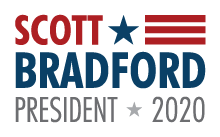We live in a free republic. The government answers to each of us. We are not its subjects; it is ours.
As a general rule, republican governments shouldn’t keep secrets. Obviously there have to be some exceptions to this rule, especially with regard to protecting citizens’ privacy and some legitimate national security matters. But these are the exceptions, not the rule. Pretty much everything governments do should be available for public inspection and review. Pretty much any government facility should be open to visitors. And, as much as possible, government data should be published and freely accessible online.
The Freedom of Information Act (FOIA) moved us in this direction, but it didn’t go far enough. There should be no need to file FOIA requests to get access to government information because they should be made public by default in any case that doesn’t include information about private citizens…perhaps after a reasonable waiting period like one or two years.
When it comes to classified national security information, it should be automatically declassified after a set period of time…say, ten years…unless reauthorized in five year increments by a nonpartisan congressional committee. Part of the right to self governance is the right to know what your government is doing, to check its work, to hold it accountable, and to advocate change.
Executive Branch
As president, I will instruct all agencies of the executive branch to publish everything they produce online for public review within one year of its creation…except when it contains information about private citizens or national security information.
I will also instruct each of the national security and defense agencies to aggressively declassify as much information as they can without causing direct harm to national defense.
And I will not prosecute whistleblowers for calling public attention to waste, fraud, abuse, and other malfeasance in government…unless they do so in a way that is reckless or directly harmful to the safety of individual intelligence agents. On my first day in office, I will pardon Edward Snowden for responsibly revealing the National Security Agency’s illegal and unconstitutional surveillance programs.
It’s also important to communicate with the press and the people. I will instruct my press secretary to hold a press briefing at least once per week, and I will personally attend and take questions at a press briefing at least once per month.
Additionally, on my first day in office I will establish a Truth Commission for the purpose of investigating unresolved political scandals and prosecuting those responsible for them.
Legislative Branch
President Obama promised before his election that all legislation would be posted online for public review for a two-week period before a vote. For two years his party controlled both houses of Congress. They didn’t bother to keep this depressingly simple promise. Sadly, lots of Obama’s transparency promises went un-kept.
As president, I will request that the Congress keep President Obama’s promise. If they don’t, then I make a promise of my own. Any bill that comes to my desk without having been posted online for two weeks before the vote will sit on my desk for two weeks before I get around to signing (or vetoing) it.
Judicial Branch
Curiously, the judicial branch is one of the most secretive. Family and juvenile courts keep everything hush-hush. Some states post decisions online, but some don’t. The federal courts post their rulings behind a paywall, which is unacceptable. The Supreme Court does post its rulings, but still refuses to allow cameras in the courtroom.
There’s not much a president can do about this except to use the “bully pulpit” and try to advocate for legislation to open up the courts to increased public scrutiny. I will bear this in mind as I consider judicial appointments. Every court should be open to public review…its proceedings should open to be filmed, its rulings posted online to be freely reviewed by anybody who is interested.
